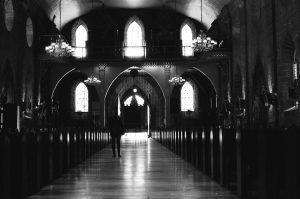
In reading Donald Duk by Frank Chin this week, I was definitely pulling out the theme of food and King Duk’s restaurant in relation to my project. In Chinatown, food connected people together. King Duk gave the Frog Twins food. The family woke up early to buy the best and most fresh seafood from the market. They stopped to talk to the man and his son who drove the truck with seafood in it. King Duck served the opera people an enormous amount of food. There is the scene where the group of them are leaving 50 pound bags of rice at everyone’s door for a whole side of a block. King’s kitchen also held significance for his and Donald’s relationship, this is where they would have important conversations and King would get to pass on history and stories.
Food not only connected people together within Chinatown, it connected people outside to enter into friendship and understanding of culture. In the beginning, the dad is talking about how he learned to cook while in the Navy and learned how to cook all different styles and types of food. There was a small mention of an advertisement in Chinatown for cooks to work at different Chinese restaurants around the nation. A big part of this connection comes from Arnold’s parents coming to King Duk’s restaurant. In the end of the book, when Donald and Arnold’s parents are in the Duk’s living room, Mr. Arnold recognizes the Chinese tradition of children becoming adult when they turn 12 during the Chinese New Year. So the dad says well because Arnold is an adult now, he can have a cappuccino. The sharing and appreciation of food leads to more understanding between the Chinese American community and outsiders.
Food was also important in Donald’s dreams, like when he was at the “deem sum” camp during the building of the railroad. There was also mention to the one hour lunch break the crew took on the day they broke the record by putting down 10 miles of track. And one of the “important” white guys said something along the lines of the Chinese workers being more efficient because they allowed people to come with Chinese style food carts instead of forcing people to eat in the cafeterias.
There was a detailed portrait of food on altars in restaurants and shops for ancestors that have passed on. Also, King Duk observed the festival of Chinese New Year and the superstition behind the character in the opera. Therefore, food connects people to tradition, culture, and religious beliefs as well as the social and physical importance it has.
This furthers my excitement to see how food ties APIA communities together and to culture, and how food illustrates cultural values that the community holds.